TRUST
Efficiently manage your assets through your life and beyond.
What is a Living Revocable Trust?
Understanding the Benefits and Importance of Living Revocable Trusts for California Residents
A revocable trust, also known as a living trust, is a document that allows an individual to manage their assets during their lifetime and efficiently distribute them after their death, without probate. While the term may sound technical, the benefits of having a revocable trust are profound and far-reaching, making it an essential estate planning tool for everyone.
1. Control and Flexibility
One of the most compelling reasons to establish a revocable trust is the control it provides. As the grantor of the trust, you retain full control over the assets and can modify or revoke the trust at any time. This flexibility allows you to adapt to changing circumstances, such as alterations in your financial situation, family dynamics, or personal preferences.
2. Avoiding Probate
Probate is the legal process through which a deceased person's will is validated, and their assets are distributed. This process can be time-consuming, expensive, and public. A revocable trust allows assets to bypass probate, ensuring a more efficient and private transfer of wealth to your beneficiaries. This can be particularly advantageous in states with complicated and lengthy probate procedures.
3. Privacy Protection
Unlike a will, which becomes a public record once it enters probate, a revocable trust remains private. The details of the trust, including the assets it holds and the beneficiaries, are not disclosed to the public. This can help protect your family's privacy and prevent potential conflicts or disputes among heirs.
4. Management During Incapacity
A revocable trust is an invaluable tool for managing your affairs if you become incapacitated. By appointing a successor trustee, you ensure that your assets are managed according to your wishes without the need for court intervention. This provision can prevent a costly and potentially contentious guardianship or conservatorship proceeding.
5. Seamless Asset Distribution
A revocable trust allows for the seamless distribution of assets upon your death. The successor trustee can immediately take control and distribute the assets according to the terms of the trust, without the delays and expenses associated with probate. This can provide financial stability and support for your loved ones during a difficult time.
6. Protecting Minor Children
If you have minor children, a revocable trust can ensure that their inheritance is managed responsibly until they reach an appropriate age. You can specify how and when the assets will be distributed, providing for their education, healthcare, and other needs. This can give you peace of mind knowing that your children will be cared for in your absence.
7. Special Needs Planning
For families with a special needs beneficiary, a revocable trust can provide for their care without jeopardizing their eligibility for government benefits. By creating a special needs trust within the revocable trust, you can ensure that the beneficiary receives the necessary support while preserving their access to essential services and programs.
8. Reducing Estate Taxes
While a revocable trust does not provide direct tax savings during your lifetime, it can be structured in ways that minimize estate taxes. For example, you can incorporate tax planning strategies such as credit shelter trusts or charitable remainder trusts to reduce the overall tax burden on your estate.
9. Simplifying Complex Estates
For individuals with complex estates, including multiple properties, business interests, or investments, a revocable trust can streamline the management and distribution of assets. By consolidating these assets within the trust, you create a cohesive plan that simplifies administration for your successor trustee and beneficiaries.
10. Providing Peace of Mind
Perhaps the most significant benefit of a revocable trust is the peace of mind it provides. Knowing that you have a comprehensive plan in place to manage your assets and provide for your loved ones can alleviate stress and uncertainty. A revocable trust ensures that your wishes are carried out, your family's privacy is protected, and your estate is managed efficiently.
Conclusion
In conclusion, a revocable trust is a versatile and powerful tool that offers numerous benefits for estate planning. From avoiding probate and protecting privacy to managing assets during incapacity and providing for minor children, a revocable trust addresses many of the challenges and complexities associated with managing and distributing an estate. By establishing a revocable trust, you take a proactive step towards securing your financial legacy and ensuring the well-being of your loved ones.
————————————
YU & YU LAW FOR YOUR TRUST AND ESTATE PLANNING NEEDS
With our firm, you can be confident that only licensed attorneys will review and draft each of your estate planning documents personally without reliance on secretaries or paralegals. You will also be communicating with your attorney for the entire duration of your case. Our approach ensures maximum quality control and a personal touch for each case made possible only with committed boutique law firms.
For most estate planning cases we are able to provide a flat fee quote after an initial free consultation.
Contact us today and tell us how we can help you and your family.
